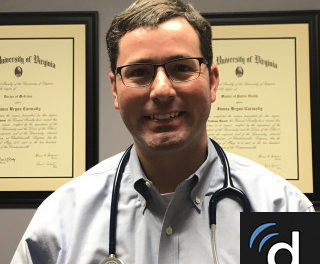12/7/211 “Justices Urged To Fix Law On Medical Pot Reimbursements” by Sam Reisman was posted today on the Law360 website. Here ’tis:
The New York chapter of cannabis advocacy group NORML is asking the U.S. Supreme Court to take up a case that could settle once and for all whether insurers can be compelled to reimburse patients using medical marijuana for work-related injuries.
In an amicus brief filed Monday, Empire State NORML and other New York cannabis industry advocates urged the high court to find that the drug’s Schedule I status is no longer tenable thanks in part to the federal government’s de facto policy of inaction when it comes to prosecuting state-legal medical marijuana activities.
The tension between state and federal policy has reached a breaking point, the brief argued, with respect to the question of medical marijuana reimbursements — a point on which state supreme courts have been almost evenly split.
“A once-festering carbuncle in the form of a constitutional supremacy and nullification crisis regarding medical cannabis has erupted into an infectious legal lesion on the corpus of American jurisprudence,” the brief begins.
The brief was filed by attorney David C. Holland, the executive and legal director of the Empire State chapter of the National Organization for the Reform of Marijuana Laws, who said it represented the best opportunity for the high court to step in and resolve not only the question of medical cannabis reimbursement, but also the entire problem of federal-state conflict over cannabis policy.
“I think this is the case the Supreme Court has to take,” he told Law360 on Tuesday. “It’s probably the most important question that has come before them with regard to cannabis.”
The brief points to state supreme court decisions in Maine and Minnesota finding that the federal Controlled Substances Act preempted local laws requiring insurers to cover medical marijuana expenses, and decisions in New Hampshire and New Jersey finding the opposite.
In the October decision at issue in the request for certiorari, the Minnesota Supreme Court said federal drug policy preempted a workers’ compensation court decision ordering Mendota Heights Dental Center and its insurer, Hartford Insurance Group, to pay for employee Susan K. Musta’s medicinal cannabis.
The court found that the company could not comply with both state and federal law at the same time and was unpersuaded by the argument that riders to annual federal appropriations bills, which bar the U.S. Department of Justice from prosecuting medical cannabis cases, changed the equation.
“Despite action in multiple states relating to medical cannabis and other cannabis-related issues, Congress has never chosen to deschedule or reschedule cannabis; it has instead used funding mechanisms to institute temporary, short-term stays of enforcement,” the Minnesota high court said. “Possession of cannabis remains prohibited by the CSA, and we cannot read these riders as implicit suspensions of a legislative determination of illegality.”
Similarly, in October 2020, the Massachusetts Supreme Judicial Court ruled that insurance companies and other parties could not be compelled to reimburse injured employees for their medical marijuana use.
In recent years, the U.S. Supreme Court has consistently declined to take up cases challenging marijuana’s Schedule I status under federal law. However, in rejecting one such case, Justice Clarence Thomas said in June that the federal prohibition on cannabis might no longer be “necessary or proper” given how much latitude states have been allowed to enact their own legalization policies.
“Once comprehensive, the federal government’s current approach is a half-in, half-out regime that simultaneously tolerates and forbids local use of marijuana,” Justice Thomas wrote. “This contradictory and unstable state of affairs strains basic principles of federalism and conceals traps for the unwary.”
In his brief for Empire State NORML, Holland adopted Thomas’ “half-in, half-out” language, saying it echoed the “House Divided” speech given by Abraham Lincoln in 1858.
“You can’t be a house divided,” Holland told Law360. “It’s a great opportunity for the Supreme Court to come in and clarify the law, and maybe even deschedule cannabis.”
Empire State NORML is represented by David C. Holland.
The case is Susan K. Musta v. Mendota Heights Dental Center, et al., case no. 21-676, in the U.S. Supreme Court.




